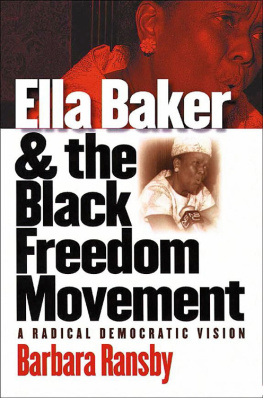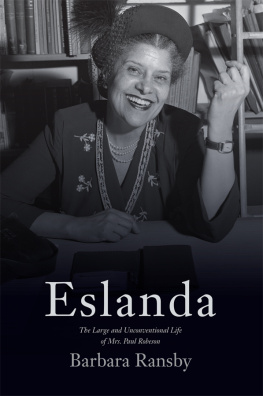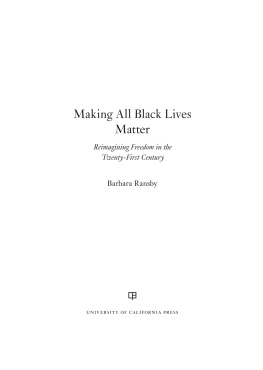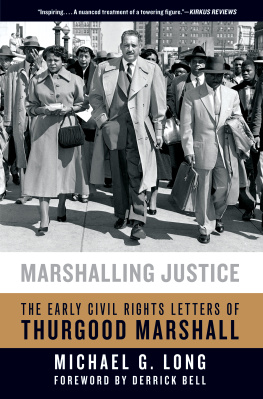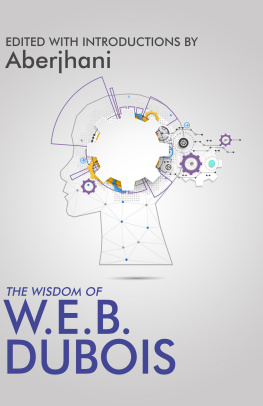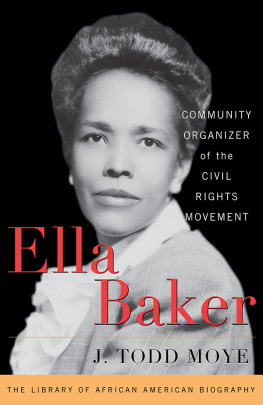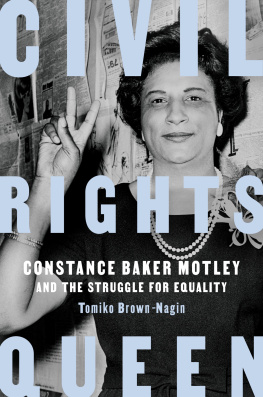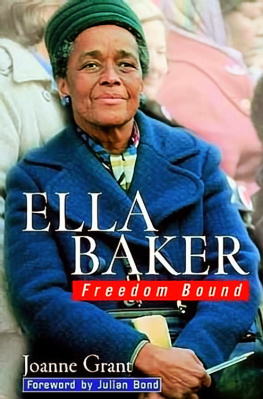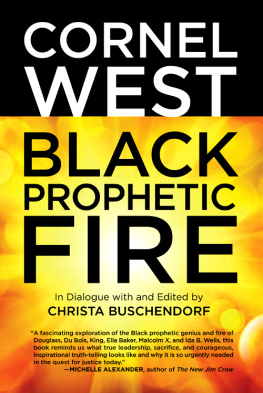GENDER & AMERICAN CULTURE
COEDITORS
Thadious M. Davis
Linda K. Kerber
EDITORIAL ADVISORY BOARD
Nancy Cott
Cathy N. Davidson
Jane Sherron De Hart
Sara Evans
Mary Kelley
Annette Kolodny
Wendy Martin
Nell Irvin Painter
Janice Radway
Barbara Sicherman
Ella
Barbara Ransby

2003 The University of North Carolina Press All rights reserved Set in Charter and Meta types by Keystone Typesetting, Inc. Manufactured in the United States of America




Ella Baker in The Crisis magazine, 1932 197
Ella Baker, ca. 1942 198
Ella Baker with NAACP colleagues, September 1945 199
Ella Baker at NAACP fair, 1950S 199
Ella Baker in Shreveport, Louisiana, 1959 200
Ella Baker and Myles Horton, ca. 1960 200
Ella Baker smiling, 1962 201
Ella Baker, Fannie Lou Hamer, Eleanor Holmes Norton, Stokely
Carmichael, and others, 1964 202
Ella Baker in Atlantic City, New Jersey, 1964 202
Ella Baker in Jackson, Mississippi, 1964 203
Ella Baker singing at SCEF luncheon, 1970S 204
Ella Baker at Angela Davis rally, 1972 205
Ella Baker with David Dellinger and Marilyn Clement, 1980 206
Ella Baker with William Kunstler and Marilyn Clement, 1980 206
Ella Baker in her Harlem apartment, 1984 207
Ella Baker, Jackie Brockington, and Carolyn Brockington, 1985 208
This book has taken me on a long and circuitous path, which began in 1989 when I chose to research the life of Ella Baker as a dissertation topic. Since that time I have encountered many wonderful fellow travelers, and experienced difficult detours along the way. One of my children grew up, another was born, and both my parents passed away. Political struggles and personal commitments repeatedly pulled me away from the task of research and writing.
If it takes a community to raise a child, it certainly takes a community to produce a book. Many people have contributed to this book directly and indirectly, and it would be disrespectful to Ella Bakers memory if I did not take time and space to recognize them. I must first express my appreciation to Ella Bakers family, especially her niece Jackie Brockington, who died months before the book was published, who, along with Joanne Grant, gave me early and extensive access to Ella Bakers papers when they were still housed at her old apartment in Harlem. Jackie never said, No, to anything I asked for-photographs, copies of documents, or a few hours of her time. I was touched that she always asked about my family and trusted me with the precious memories of hers. She exemplified those fine qualities for which others praised her beloved aunt Ella. I regret terribly that she did not live to see the completion of the book. I am also deeply indebted to Joanne Grant, whose documentary Fundi brought Ella Baker to life for my generation and whose own biography of Baker made a vital contribution. Joanne was a friend and colleague throughout the writing of my dissertation. In the spirit of Ella Baker, we chose to cooperate and coexist rather than compete in our efforts to tell her story in our own words. We agreed early on that there was certainly room for two Ella Baker biographies.
I have had the benefit of quite a number of amazing readers and researchers who have made invaluable contributions to this project. Cathy Cohen, my dear friend and adopted sister, has been a glowing inspiration and an unwavering source of support. During our morning phone conversations, at our respective computers, she often began with the question, Hows Ella?-as if checking in on an ailing family member. She read large portions of the manuscript and opened her home and her heart at critical junctures. Tracye Matthews, friend, colleague, reader, research associate, fellow activist, and birthing coach, read, edited, and dug up details to help move this book along. The photo of Ella Baker that she gave me has hung above my computer for six years now. My dear friend Premilla Nadasen schlepped down to the Municipal Archives in New York and maneuvered her way around bureaucratic hurdles to get access to Ella Bakers divorce records. She and her family then welcomed me into their Mount Vernon, New York, home for a weeklong writing retreat in the summer of 2001 to finish one round of revisions on the book. Thanks to Billy Gladstone for keeping the coffee brewed and Tyler Kirin for being a delightful distraction during my stay.
Gerald Horne is a generous colleague who, when I asked him to read Soo pages in a week, responded that he would be honored. Timothy Tyson and John Dittmer were also extremely knowledgeable and thoughtful readers and continue to be treasured colleagues, who remind me with their own sterling examples that we can love our subjects and still write damn good history books. And I will be ever grateful to the amazing Charles Payne, whose own work helped to bring Ella Baker to a wider audience and who nudged me along for years with hugs, gentle criticism, profound insights, and words of reassurance.
Martha Biondi took time away from her own book-writing to read and comment on my manuscript. Her comments have strengthened the final product, and her professional and political example continues to strengthen my resolve. I would also like to thank scholar-activist Leith Mullings for her generous reading of several chapters. Colleagues of mine at the University of Illinois at Chicago-Sue Levine, Bill Ayers, Amanda Lewis, John DEmilio, and Eric Arnesen-read the manuscript carefully and provided enormously helpful suggestions and comments. John and I have had many wonderful Ella and Bayard lunches to talk about our tandem biographies. We all anxiously await what promises to be the definitive biography on Bayard Rustin.
Aldon Morris introduced me to Ella Baker in his civil rights seminar fifteen years ago, and I am ever grateful. He continues to be a friend, mentor, and colleague. Clayborne Carson, Susan Carson, Stewart Burns, and the staff at the King Papers Project were enormously helpful to me at the early stages of this project during the week I spent at Stanford. They provided advice, information about historical documents and obscure archives, and a friendly and intellectually stimulating environment. Daniel Holliman aided me in digging up information in George Schuylers papers at Syracuse University at a moment when timing was everything. Herbert Hill welcomed me into his home, fed me a fine meal, and shared important insights and recollections. On a separate occasion in another city, Lenora Taitt-Magubane did the same thing. Other researchers have sent me little treasures-letters, news clippings, and interviews-to fatten my already engorged Ella Baker files. For these contributions, I thank John Bracey, Jerry Markowitz, Andrea Vasquez, John Thornbery, Julius Scott, Pam Sporn, Archie Allen, Wendy Plotkin, and Kathleen Cleaver. Penny Von Eschen and Kevin Gaines have also been wonderful colleagues and supportive friends. Vincent Hardings support is also much appreciated.

